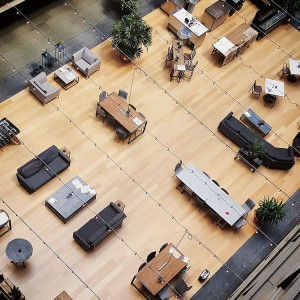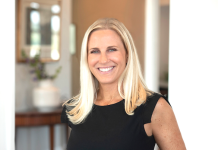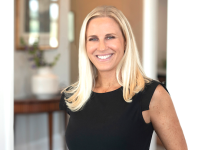By Marion Lynch
HOLMDEL – In a building that was once the center of technology, two young innovators are creating a home for those who dream of starting up their own companies.
At the center of the 472-acre former Bell Labs property sits a 2 million square foot building designed by Eero Sarineen built in 1963. In its heyday Bell Labs was home to world-renowned scientists – including seven Nobel laureates – whose discoveries include the transistor, the laser and the cell phone.
Work is now underway at the long-vacant building, as Somerset Development restores and repurposes the facility into a mixed use project of hotel, retail and office space call Bell Works.
Chris Pallé and Sean Donohue, co-founders of vi, a coworking, education and incubation firm that was inspired by the words “viable” and “innovation” and is pronounced “vie,” believe that the site is the perfect space for their company.
Ingenuity and creativity is “in the DNA” of the building says Donohue, and they hope their company can help a new generation of innovators discover new technologies and businesses.
What is ‘coworking’? Pallé and Donohue say it’s all about networking.

“Coworking is about collaboration and community,” said Pallé. “It’s more than renting a desk in an office space. It’s more open. Coworking is about having events together and working together while still working on your own projects.
Traditional “rent-a-desk” businesses offer small business owners a desk and a small office, they say, but vi’s focus is on bringing founders and inventors together to grow their individual businesses in a collaborative setting.
“There’s that encouragement to know who your neighbors are,” say Donohue. “It’s more inviting to come out of your private space into the collaborative space during the day. You can have a private office, but still sit with other people and learn what they’re doing.”
Vi provides space for inventors, creators and others who dream to start their own company, a space to work and meet other entrepreneurs. The company has a no-commit policy, meaning that clients can pay $20 for space by the day without a long-term contract.
They are currently working in what they call their “beta space,” in the expansive lobby. It’s a wide-open area; yet quiet enough to allow for thinking and private conversations.
Next up for vi: a move to a 25,000 square foot enclosed space in the back of the building.
Two floors down in the basement is an old machine shop that will be converted into a modern-day “makers space,” and the 1990s era Lucent media center will be transformed into a state of–the-art facility for use by media companies, marketing support services and others.
Clients get a seat at a desk with hook-ups for laptops or other equipment. There’s a well-stocked café, presentation equipment, and white boards in their “huddle room.”
“When you’re getting off the ground it can be daunting to have a lease for seven years,” said Donohue.
The flexible, no-commitment policy allows entrepreneurs to start in a small space and grow when their company grows, he added. Pallé said vi is focused on technology groups and attracting software startups and companies that offer ancillary services like business coaches, interim CFOs, attorneys, accountants, and marketing groups.
Their current mix of clients includes tech startups, data storage firms, a drone company and an agricultural technology firm. The space has a natural attraction to engineers, researchers and technologists, Pallé says. “Vi is a space designed so they can work on their craft.”
Education is a key component at vi, offering workshops and meetups on a variety of topics like financing an early stage company, self-driving cars, drones and 3D printers.
Their next workshop entitled “The Internet of Things and Agriculture Discussion” will be held October 28 at 6 p.m. See the website for more information.
Next up for Pallé and Donohue is the launch of a venture fund to connect founders of startups with the capital they need to launch their ideas.
“There is a great legacy here,” says Pallé. He hopes vi can be “a part of the narrative” of the future of makers and innovators in New Jersey.














